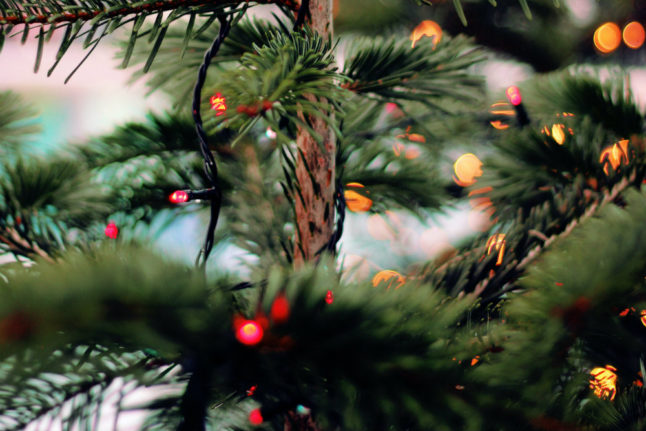The continuation of the local restrictions in the Norwegian capital mean residents there will be encompassed by different rules to the rest of the country during the festive season.
“Christmas 2020 will not be like usual. Let there be no doubt. The infection situation in Oslo is still serious,” executive mayor Raymond Johansen said at a briefing on Thursday, reported by NRK.
The social lockdown restrictions first introduced last month will continue, Johansen confirmed.
READ ALSO:
- Norwegian capital announces ‘social lockdown’ including ban on serving alcohol
- Oslo extends coronavirus social lockdown into December
- 'This situation is really demanding for a lot of people': Oslo residents on living with social lockdown
A small number of the restrictions will be eased:
- Youth clubs will be allowed to open for children between 13-19 years with up to 20 young people allowed to attend at one time
- Alternative Christmas celebrations for vulnerable people will be permitted, provided an organisation is responsible for the event
- Religious services and other religious congregations will be permitted for up to 20 people if fixed seating, one-metre social distancing and other infection guidelines are followed
“We hope this can contribute to less isolation and loneliness at Christmas. And more togetherness,” Johansen said.
Oslo’s ban on private gatherings of more than 10 persons is to remain in place throughout Christmas. This is a stricter rule than the one in effect in the rest of Norway, which allows larger gatherings on two occasions during the Christmas period.
“If we were to change the ban in Oslo based on the government’s national recommendations, we’d need a completely different infection situation in Oslo. We must make local evaluations,” Johansen said.
The current restrictions will be re-evaluated on January 7th.
Although Oslo’s infection rates have fallen in recent weeks, the city still makes up one in three of all current coronavirus infections in Norway, according to NRK.
Authorities advise against non-essential travel within Norway, but travelling home for Christmas can be considered necessary, according to public health agency NIPH.
People travelling from high to low infection areas are asked to practice caution for the first 10 days after travelling domestically.
The following restrictions remain in place in the capital:
- All indoor events are banned. The only indoor social activity allowed is gatherings in private homes, where there can be up to ten people, if infection control measures are complied with.
- Weddings, confirmations and other family gatherings where there are more than ten people are not allowed.
- All businesses where cultural and leisure activities take place closed, except libraries.
- Cinemas, theatres, playgrounds, gyms, sports and swimming pools closed.
- Grass roots sport (breddeidrett) and leisure activities for adults banned.
- Bars banned from serving alcohol.
- Restaurants can stay open but without serving alcohol.
- Passengers and drivers in taxis must wear face masks.
- Shops and malls must ensure the number of customers does not prevent two-metre social distancing being maintained.
- ‘Red' level at upper secondary schools and adult education, with reinforced infection control measures and smaller groups.
- School grades 8-10 (ungdomsskole) also at the ‘red' level of restrictions used by health authorities for schools.
Here are some exceptions:
- Libraries remain open.
- Children's sports can train, but not participate in competitions and tournaments.
- Organised leisure activities for children can continue.
- Elite sports can be carried out but with the spectators outside not inside.
- Funerals and burials can be held.



 Please whitelist us to continue reading.
Please whitelist us to continue reading.
Member comments